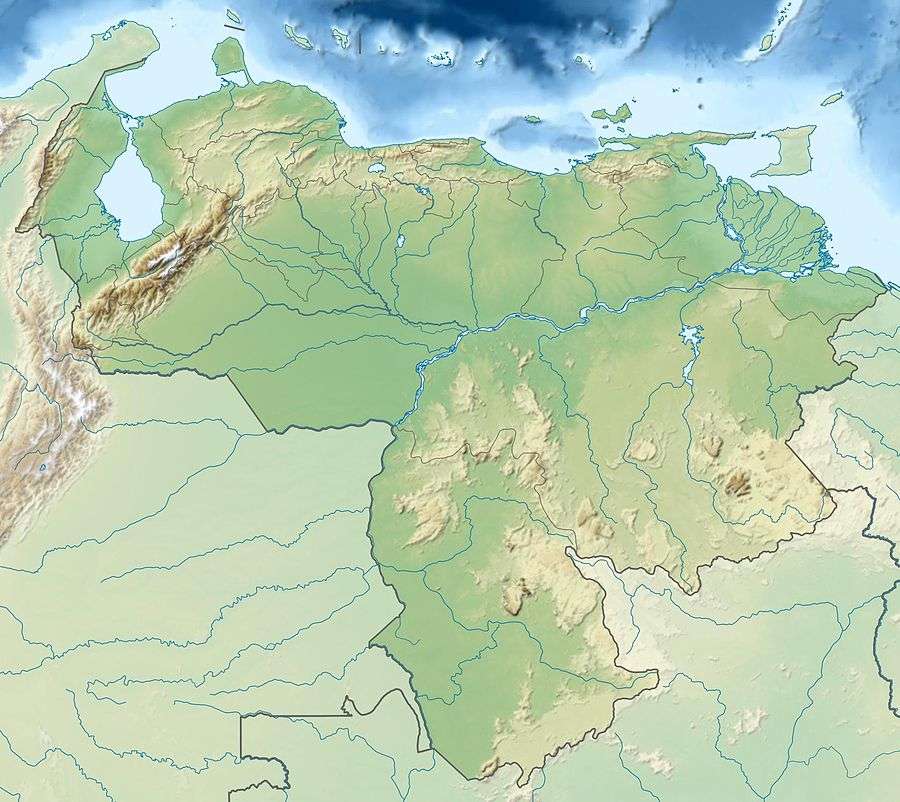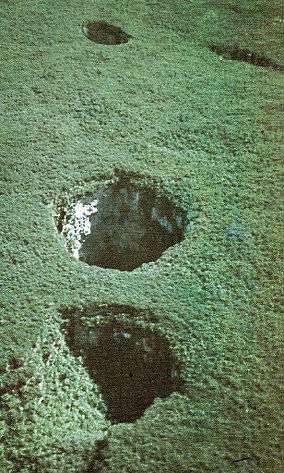Jaua-Sarisariñama National Park
| Jaua-Sarisariñama National Park | |
|---|---|
| Parque Nacional Jaua-Sarisariñama | |
|
IUCN category II (national park) | |
|
The sinkholes of Sarisariñama | |
 | |
| Established | 1978 |
| Governing body | INPARQUES |
Jaua-Sarisariñama National Park (Spanish: Parque nacional Jaua-Sarisariñama) is situated in southern Venezuela.[1] It was declared in 1978.
The landscape of the park is notable for three sandstone tepuis, Jaua, Sarisariñama and Guanacoco.[2] The top of Sarisariñama is forested and has sinkholes.
Ecology
The park is an Important Bird Area. Resident bird species include Tepui parrotlet (Nannopsittaca panychlora).[1]
Amphibians of interest include three species of stefania (carrying frogs) which appear to be endemic to the park:
- Stefania oculosa (Spanish: Rana Stefania De Ojos Grandes)[3]
- Stefania percristata[4]
- Stefania riae
References
- 1 2 BirdLife International (2015) Important Bird and Biodiversity Area factsheet: Parque Nacional Jaua-Sarisariñama Downloaded on 11/11/2015
- ↑ The names are from the language of the Ye'kuana people, who call the mountains Jaua-Jidi, Sarisariñama-Jidi and Guanacoco-Jidi.
- ↑ Señaris, C., MacCulloch, R. & La Marca, E. 2004. Stefania oculosa. IUCN 2015. IUCN Red List of Threatened Species Version 2015. Downloaded on 9 November 2015.
- ↑ Frost, Darrel R. (2015). "Stefania percristata Señaris, Ayarzagüena, and Gorzula, 1997". Amphibian Species of the World: an Online Reference. Version 6.0. American Museum of Natural History. Retrieved 7 March 2016.
This article is issued from Wikipedia - version of the 11/24/2016. The text is available under the Creative Commons Attribution/Share Alike but additional terms may apply for the media files.
